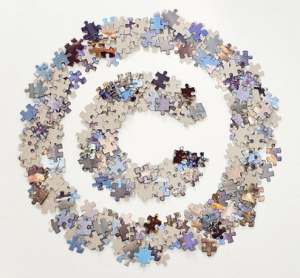Copyright and Fair Use: Good News for Writers, Bad News for Content Scrapers (AP v Meltwater)
For anyone interested in copyright and fair use, the recent decision by the U.S. District Court for the Southern District of New York in the case of AP v Meltwater makes an interesting read.
Below I highlight the most interesting parts of the 83-page opinion, and in Part 2 of this series I draw implications for publishers, freelancers, and bloggers who are trying to earn a living by writing online.
The good news for writers? Despite the ease of digital copying, copyright protection for online articles and excerpts from articles isn’t going away, and writers can take steps to profit from that.
AP v. Meltwater: An Overview
Meltwater scrapes news articles on the web and provides excerpts of them to paying subscribers. It did so on AP content without a license, and AP sued Meltwater for infringing its copyright.
Their excerpts typically include the article headline, a hyperlink to the source article, and up to 300 characters from the opening text of the article. Meltwater contended that such excerpts fall within the fair use exception to copyright law, eliminating their need to buy a license, but the court disagreed.
The court stated that while facts cannot be copyrighted, news articles are protected by copyright if they display original expression.
Copyright and Fair Use: The Four Factors
Whether one can reuse excerpts from articles without a license, often referred to as fair use, is dependent on four factors which must be weighed together.
Here’s how the court ruled on each of the four factors:
Fair Use Factor 1: The purpose and character of the use, including whether such use is of a commercial nature or is for nonprofit educational purposes
The court determined that Meltwater performed poorly on the first factor because it didn’t add “commentary or insight” to the excerpts, and so was simply profiting from AP’s labor.
Allowing Meltwater to take excerpts without paying would give them an unfair competitive advantage over other press clipping services that do pay licensing fees.
Meltwater tried to argue it was adding value by acting as a search engine that directs readers to the source article.
But — since the click-through rate on the links to the original articles was only 0.08% — the court not only rejected this argument, but took it as evidence that the excerpts were serving as substitutes for the original articles.
While the excerpts may have been short, they were the “essence” of the article, negating the need for the reader to go to the original.
Fair Use Factor 2: The nature of the copyrighted work
On the second factor, since the articles in question were news articles, the court leaned in favor of fair use.
Fair Use Factor 3: The amount and substantiality of the portion used in relation to the copyrighted work as a whole
On the third factor, the court leaned against Meltwater. The excerpts ranged from 4.5% to 60% of the original article. Significantly, the judge wrote:
“In terms of quantitative copying, the Second Circuit has found that copying as little as eight percent of the original work may tip this factor against a finding of fair use…It is clear, however, that no bright-line rule exists with respect to how much copying is too much.”
It is not just how much of a work is used, but also whether the part used is the critical part:
“relatively small takings may be significant if the portions taken are qualitatively important.”
For example, Meltwater took the one-sentence “lede” from each AP story. Since the lede is deemed to “convey the heart of the story” the judge found reusing that problematic even when the excerpt was short.
Fair Use Factor 4: The effect of the use upon the potential market for or value of the copyrighted work
On the fourth factor the court also found against Meltwater, concluding not only that its unlicensed use had caused loss to AP, but also concerned that if everyone in the market behaved in a similar manner the collective harm would be significant by siphoning away paying customers from AP.
The court described how content creators can themselves impact whether fair use applies (quoting a prior decision):
“it is sensible that a particular unauthorized use should be considered more fair when there is no ready market or means to pay for the use, while such an unauthorized use should be considered less fair when there is a ready market or means to pay for the use.”
So fair use applies more narrowly when publishers make it easy to license their work.
What Does This Mean for Publishers, Freelancers, and Bloggers?
I hope this summary of the court ruling helps to explain the reasons why Meltwater’s republication of excerpts is copyright infringement, and not fair use.
However, at iCopyright, we are more interested in how writers can profit from this decision than the Meltwater case per se.
The Meltwater case is good news for anyone trying to earn a living by writing online.
Why? Because the court solidly ruled that your creative work has value … and that value is protected by copyright. When their work is republished, writers can expect more than just a (rarely-clicked) link back to their site.
As we’ll discuss in Part 2 of this post, by encouraging licensed reuse, and making it easy for your readers to demonstrate tangible appreciation when they reuse your articles – or excerpts from your articles — with services like iCopyright’s Toolbar and EZ Excerpt service, you can make your original content profitable as well as accessible.

LicenseFriendly & Fair Use / Fair Dealing - iCopyright
May 15 @ 11:42:57
[...] and republish content widely while monetizing it wherever it travels. This can conflict with fair use (U.S.) and fair dealing (Canada) which gives readers legal rights to reuse limited amounts of [...]